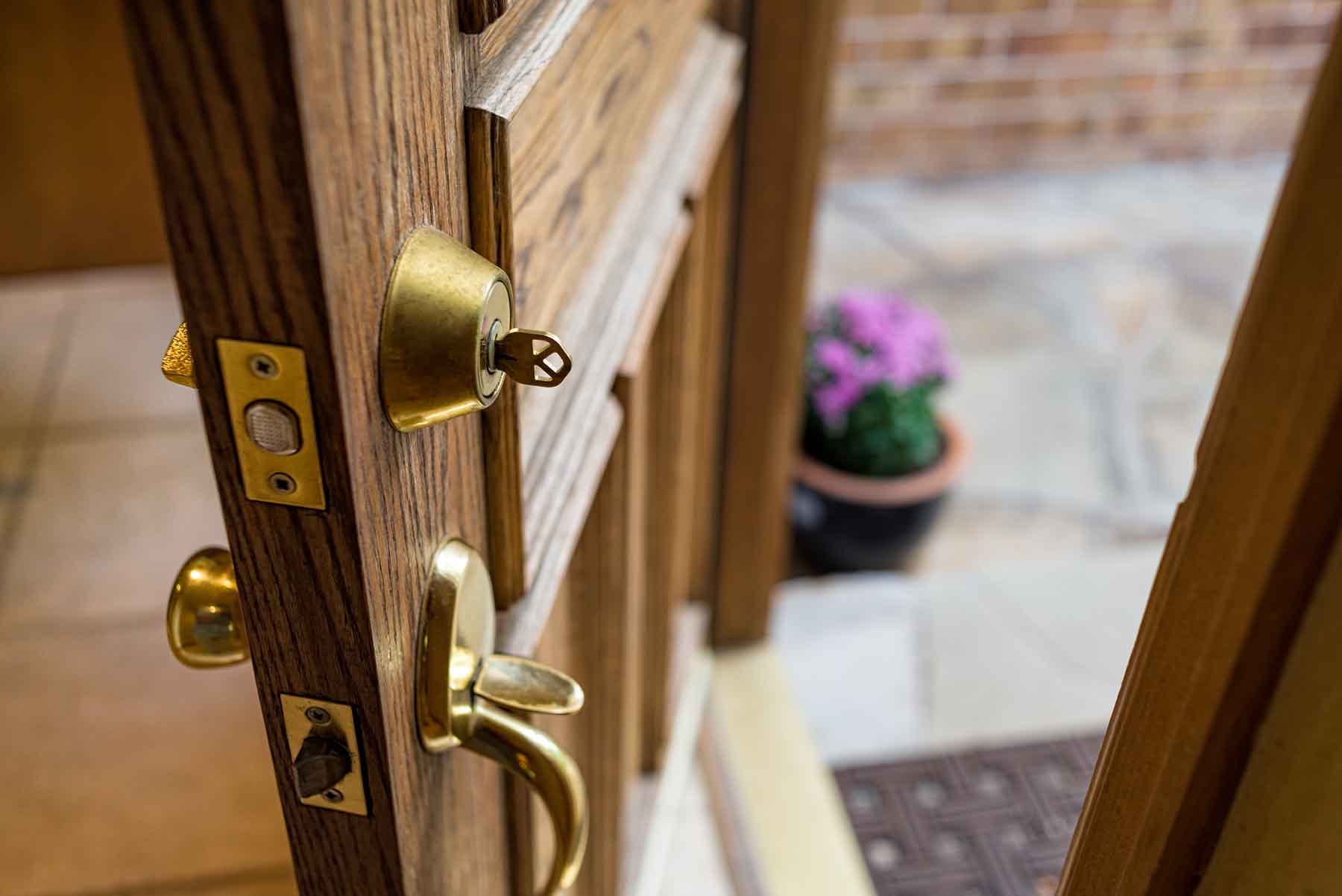Our Top Tips for New Homeowners in the First 24 Hours

You just purchased your new home—now what? Before you make the big move, there are important safety, maintenance, and convenience steps to take leading up to and right after making yourself at home.
Let’s learn how to make the most of your first 24 hours in your new place.
Change Your Locks
When you buy a home, you don’t know who owns a copy of the keys. Family members, pet sitters, housekeepers, neighbors, and others may have access to the home with its existing locks. Calling a locksmith to replace all exterior locks on the home, including sheds and garages, is one of the simplest ways to give yourself peace of mind.
If the home lacks a deadbolt, consider having your locksmith add one while changing the locks. Due to how a deadbolt functions, it will always offer more security than a doorknob lock alone.
For homes with electronic keypad locks, changing the code to something new and difficult to guess adds an extra level of security. Avoid using codes that would be easy to guess, such as the house number, zip code, or repetitive numbers.
Set Up or Transfer Utilities
Whether you’re moving locally or somewhere totally new, you’ll want all the necessities ready for your move-in date. Before showing up on that first day, be sure to do your homework and contact your utility providers for electricity, water, gas, and internet services.
For some of these services, the switch is as simple as an activation and address transfer, but for others, you may need to schedule installation or equipment rental.
Change Your Mailing Address
Mail often contains personal or sensitive information that you definitely don’t want getting lost or falling into the wrong hands. When moving, be sure to change the mailing address for yourself and anyone coming to live at the new address.
You can change your mailing address online on the USPS official website or in any Post Office location. (Note that there is a $1.05 charge to change your address online for identity validation.) Beware of online scams that charge a large fee to forward mail on your behalf. Go directly to the USPS.com website to make the change to avoid clicking on deceptive links in online search results.
Prioritize changing your mailing address with credit unions, banks, credit card companies, and other institutions. Update your online accounts’ delivery and billing address to ensure no packages get lost in the shuffle, and no subscriptions are interrupted.
Locate Shut-Off Valves
An emergency can strike at any time of day or night. Learn how to turn off your water, gas, and electricity to prevent further damage and disaster. Shut-off valves and electrical panels can be found by the appliances that use them, inside the utility closet, or even outside the home by the street.
If you are ever away from your home for an extended period of time, turning off your water, for example, can prevent a damaged pipe or leak from wreaking havoc while you’re gone.
If your home uses natural gas, learn how to shut off the gas line in case you been recommended by your service provider to do so. If you smell gas, hear gas escaping, or see other signs of a leak, only turn off the gas if it is safe.
Shutting off electricity is generally as straightforward as switching circuit breakers to the ‘off’ position. If the panel isn’t clearly labeled, experiment with which breakers are connected to which rooms and label them for future use.
Test Detectors and Prevent Emergencies
You wouldn’t want to find out that your smoke detector batteries are dead during a fire. Test smoke and carbon monoxide detectors and replace the batteries so you aren’t left wondering how old they are. If your region requires additional detectors, such as radon detectors, include them where necessary.
Every home should have at least one fire extinguisher for safety. Ideally, one should be kept on each level of your home, including all locations where a fire is more likely to start, such as in the kitchen or by the fireplace.
Fire extinguishers are not one-size-fits-all. There are multiple types with different letter gradings that are appropriate for use on different class fires, such as a grease fire versus an electrical fire. Keep the suitable extinguisher close to its possible cause and be sure that everyone in the home knows where it is and how to use it.
Establish a Maintenance Schedule
Your new home is going to need care, with some tasks needing much more frequent attention than others.
Determine what you are able (and willing) to do yourself, then figure out what should be left to the professionals. Set a budget and frequency for the maintenance and find your pros. Consider asking neighbors who they use or checking out local ads for trustworthy leads.
Some tasks you may need to plan for sooner than later include HVAC maintenance, landscaping and tree care, gutter cleaning, and chimney cleaning. These tasks, if left unattended, can range from appliance inefficiency to potentially damaging your property. Staying on top of this maintenance from day one can help prevent future expenses.
Make Plans for Your Future
By building a strong foundation for home care, new homeowners can ensure a smooth transition after buying a home and maintain the property effectively. For all other home needs, from realty to home equity loans, American Heritage is by your side to help make your dream home a reality. Contact us today and learn how we can assist you.

